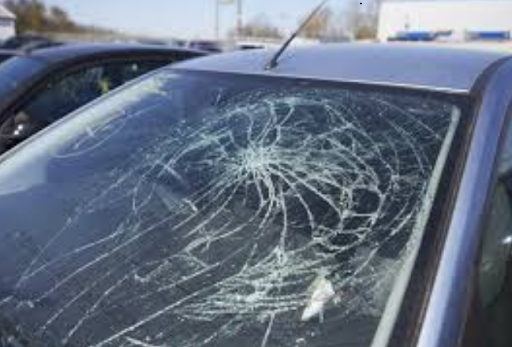Michigan drivers are no strangers to harsh winters. Freezing temperatures, icy roads, heavy snow, and reduced visibility are just part of the seasonal routine. While most motorists take the time to winterize their vehicles—checking antifreeze levels, changing wiper blades, and inspecting tires—many overlook the risks of a cracked windshield during the coldest months of the year.
Although it may seem like a minor cosmetic flaw, a cracked windshield can quickly become a serious safety hazard in winter conditions. From rapid crack expansion to structural failure, here’s why it’s dangerous to drive with a damaged windshield during a Michigan winter—and what drivers should do instead.
1. Cold Temperatures Make Cracks Spread Faster
When glass is exposed to sudden changes in temperature, it expands and contracts. Michigan winters are known for their unpredictable temperature swings, and these fluctuations can cause small chips or cracks to spread rapidly across the windshield.
Using a hot defroster on a cold windshield only makes things worse. The inside of the glass heats up while the outside remains frozen, creating uneven pressure that can cause cracks to expand—sometimes instantly. A tiny chip that could have been repaired for a low cost may suddenly require a complete windshield replacement.
2. Snow, Ice, and Glare Reduce Visibility
Visibility is one of the biggest challenges of winter driving. Snow buildup, foggy windows, and icy wipers already make it harder to see. A cracked windshield adds another layer of distortion—scattering light from headlights and streetlights, creating glare, and blocking part of the driver’s line of sight.
Cracks also accumulate moisture and dirt more easily, especially during slushy conditions. The result is a windshield that’s harder to clean and significantly more difficult to see through in poor weather.
3. A Cracked Windshield Weakens Your Vehicle’s Structural Integrity
The windshield is a structural component of modern vehicles. It supports the roof, aids in airbag deployment, and helps maintain the frame’s rigidity during a collision or rollover. If the glass is cracked or compromised, it may shatter more easily in a crash, increasing the risk of injury.
According to the National Highway Traffic Safety Administration (NHTSA), the windshield contributes up to 60% of a vehicle’s structural integrity during a rollover accident. A damaged windshield undermines that support, making the vehicle less safe in the event of a crash.
4. You Might Be Breaking the Law
While Michigan law does not specify exact crack dimensions, it does prohibit operating a vehicle with obstructed vision. A crack in the driver’s line of sight or one that interferes with wipers can be considered a traffic violation and lead to a citation.
In addition, if the damage is determined to be a contributing factor in an accident, it could affect liability and insurance coverage. Some insurers may even deny coverage if the vehicle was knowingly operated in an unsafe condition.
5. Delaying Repairs Can Cost You More
Waiting too long to repair a crack—especially in winter—can lead to costly consequences:
- Cracks spread quickly in freezing temperatures
- Ice and water seep into the glass, worsening the damage
- Vibrations from driving over potholes (which are common in Michigan winters) can accelerate the spread
- Repairs may no longer be possible once the crack exceeds a few inches, requiring a full replacement
Fortunately, many insurance providers cover the cost of minor windshield repairs, and full replacements are often only subject to the deductible. Taking action early can help avoid higher expenses down the road.
What Should You Do?
If you notice a chip or crack in your windshield—especially before or during winter—don’t ignore it. Inspect the damage, avoid using hot water or aggressive defrosters, and seek professional help as soon as possible.
For those unsure whether repair or replacement is necessary, it’s best to consult with a certified auto glass technician. In cases where a full replacement is required, a reputable service provider can ensure the job is done safely and correctly.
You can find more information about the process, safety standards, and options for windshield replacement through licensed professionals who specialize in auto glass services.
Conclusion
Michigan winters put vehicles—and their drivers—through serious stress. A cracked windshield might seem like a minor issue, but in winter conditions, it can quickly become dangerous. Between the risk of reduced visibility, structural failure, and legal consequences, it’s clear that this is not a repair that should be delayed.
Stay safe, stay warm, and address windshield damage promptly. It’s one of the easiest ways to protect yourself, your passengers, and everyone else on the road.







